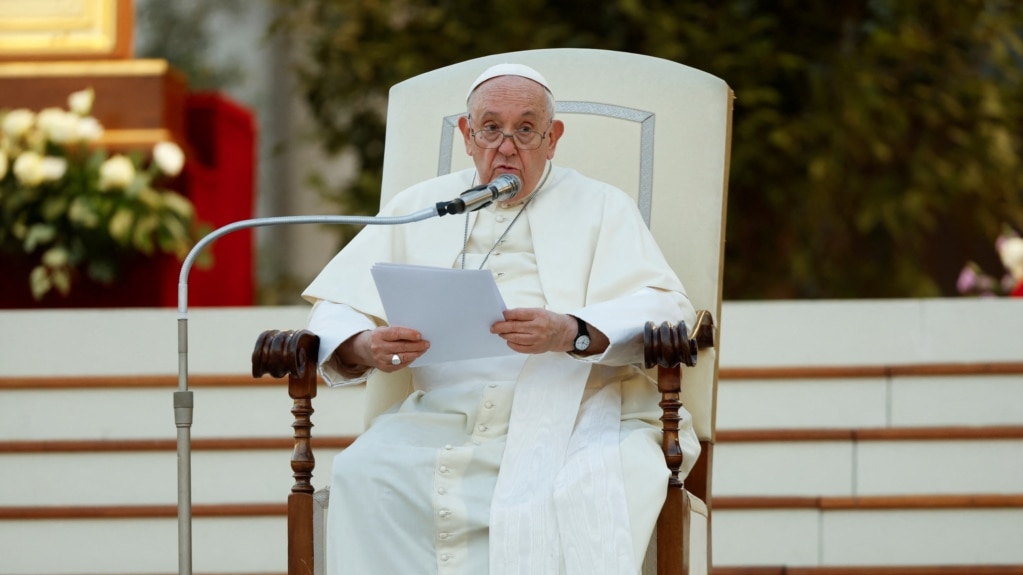Pope Francis on Wednesday is opening a gathering of bishops and others to discuss the future of the Roman Catholic Church. Some of the discussions include subjects that have never been considered before.
For the first time, women and non-clergy can vote alongside bishops in what is called a Synod of Bishops. The change reflects Francis’ belief that the Church is more about its people than its leaders.
The gathering, called a synod, starts on October 4 and will end on the 29. It will be followed by a second gathering next year. The second synod is expected to put forward detailed proposals for Francis to consider in a future document.
The synod will have 365 voting members including the pope and 54 women. Their numbers are chosen by national bishops’ organizations and religious orders.
In addition, there are around 100 experts and “facilitators,” who will help move the discussion along. But they will not vote on a final document.
What will be discussed?
The working document for the gathering came after two years of listening to concerns from Catholics around the world. The aim has been to raise questions and start a debate.
For example, the document calls for specific steps to promote women to decision-making positions in the church. And it calls for church members to have more influence in church governance.
It also suggests the “inclusion” of LGBTQ+ Catholics and measures to prevent clergy from abusing their power.
Conservative concerns
Some conservatives have raised questions about the synod since Francis announced it three years ago. They said that those questions have already been settled by church teachings. And raising the questions only risks division among church members.
Just this week, five conservative cardinals from Europe, Asia, Africa, and the Americas made their disagreement with Pope Francis public.
In a letter, they put forward five questions, or “dubia,” asking Francis to affirm church teaching on these issues, including homosexuality and female clergy. They said the synod was creating confusion.
Francis answered that changes in the world help the church to better understand and explain its teachings and that the synod is a way to find the path forward.
“With much sincerity, I tell you it’s not good to be afraid of these questions,” Francis told them.
A closed synod
For two years, the preparation for the synod has been open to the public. However, the synod itself will be closed to outsiders.
There will be no live stream of the gathering. Organizers say it will be a closed-door meeting and those taking part have been told not to speak to reporters. No daily briefings are planned as in earlier synods although five briefings are expected to take place over the time of the gathering.
Francis has defended the measures. The pope said he did not want “political gossip” leaking out with news of attendees arguing over disputed issues.
“This isn’t a television show,” he told reporters in August.
I’m Anna Matteo.

